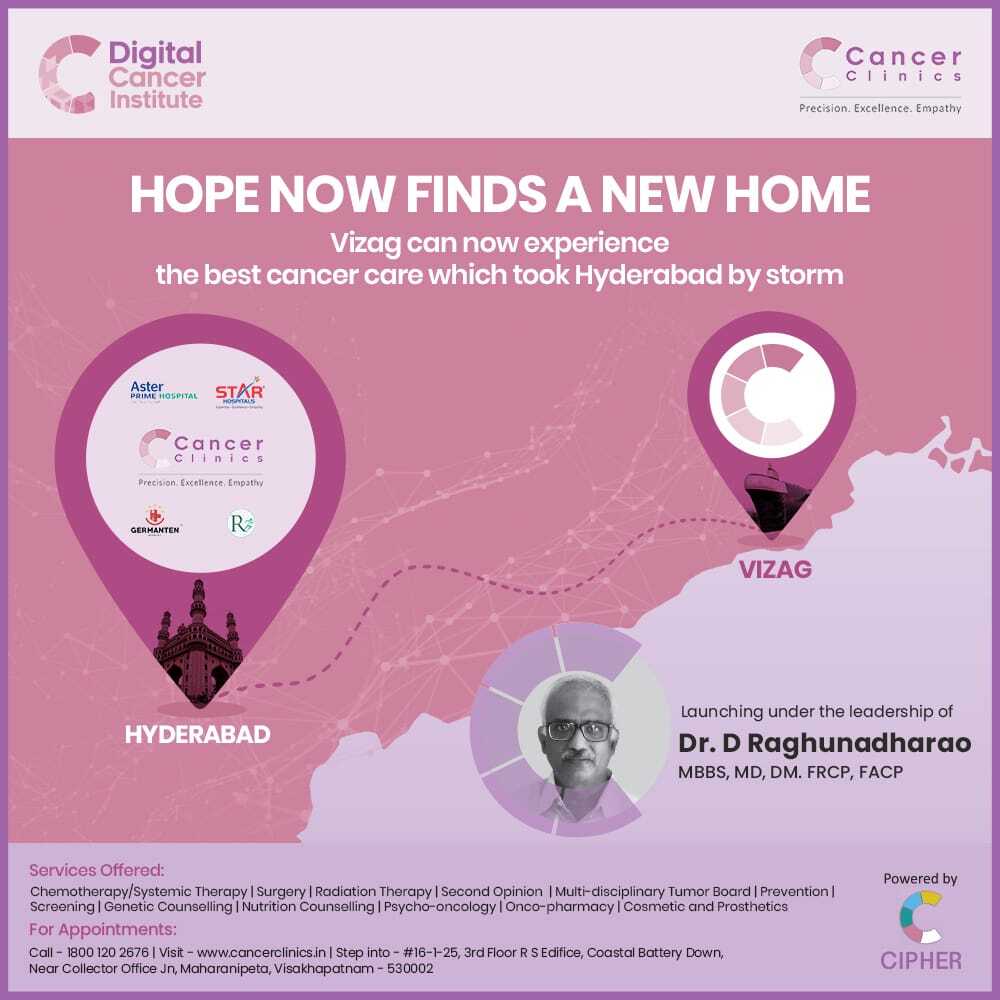Good nutrition plays a key role in cancer care. There is sufficient evidence to show that a stronger body can resist cancer; hence good nutrition is vital to the prevention of cancer. Furthermore, even when one is going through cancer treatment, good nutrition helps in better treatment outcomes.
We, at Cancer Clinics, are developing a one-of-a-kind nutritional model for cancer patients in India. Our nutritionists design a diet plan exclusively focused on the individual needs of cancer patients. This diet plan takes into consideration pre-existing conditions, treatment plan and side effects of treatment.
WHY DO WE NEED NUTRITIONAL SUPPORT?
Good nutrition plays a larger role when one is battling cancer. Eating a planned diet can help a cancer patient stay strong, and deal with treatment better. Often, patients with better nourishment also have a better prognosis during treatment.
More importantly, when someone is diagnosed with cancer there are two aspects to consider while addressing their nutritional needs. Firstly, cancer changes the way the body consumes nutrition. Based on the kind of cancer, sometimes, the body cannot absorb nutrients at all. So, although the patient might be eating nutritious food, the body might not be processing those nutrients.
Hence, often cancer is accompanied by certain malnutritional conditions called anorexia and cachexia, irrespective of the kind of treatment.
Anorexia - Anorexia is defined by the lack of desire to eat or a lack of appetite.
Cachexia - Cachexia is a condition of muscle wastage, which is marked by weakness, weight and muscle loss.
To address both of these conditions, the patient needs to consume a planned and balanced meal to improve their capacity to absorb nutrients.
SIDE EFFECTS OF TREATMENT
Secondly, while undergoing cancer treatment, the body faces several unwanted side effects. Chemotherapy, radiation, immunotherapy, and even surgery have side effects. These side effects have an impact on the way the body consumes food.
Some common side effects of chemotherapy include nausea, vomiting, constipation, diarrhoea, mouth ulcers and troubles in swallowing. In case the patient receives radiation, the area surrounding the tissue where radiation is being received, can damage cells very quickly. This cell damage also adds to side effects. Such side effects have a direct impact on the individual’s capacity to consume food.
HOW DOES NUTRITION SUPPORT HELP?
A healthy diet during cancer treatment includes a fully planned meal including all the nutritional groups. Often, in our diets, we tend to ignore certain food groups owing to cultural habits. However, the value of a balanced meal increases significantly while undergoing cancer treatment.
While dealing with nutrition for cancer patients, apart from a balanced diet, there are few additional guidelines to be kept track of. For instance, although fruits and vegetables are very rich in nutrients, cancer patients are not given any of this in raw form. Since they are immuno-suppressed, all raw fruits and vegetables are blanched with warm water, before consumption.
Also, the side effects of cancer keep changing frequently, making it tough to understand what the patient is going through on a day to day basis. Constant monitoring is imperative, while continuously making sure that the patient can stay interested in food.
During the course of treatment, it is very important to pay attention to not just the amount of food, but also the right kind of calories consumed. The eating habits and nutritional needs of a cancer patient could be different from that of a healthy adult.
These recommendations and requirements make it daunting if someone has to plan the meal alone. There are trained nutritionists who can work in making this process easier. Our trained dietician is an important part of your cancer care team, who can help by offering you individualised plans.
BENEFITS OF SEEKING SUPPORT FROM A NUTRITIONIST
- Build a diet chart based on your food habits, preferences, nutritional needs, side effects, and treatment plan
- Prevent unwanted weight loss
- Have an improved sense of wellbeing
- Manage side effects better
- Make changes to your diet plan based on the needs then
- Counter malnutrition causing side effects
- Slowly move back to regular diet post-treatment
